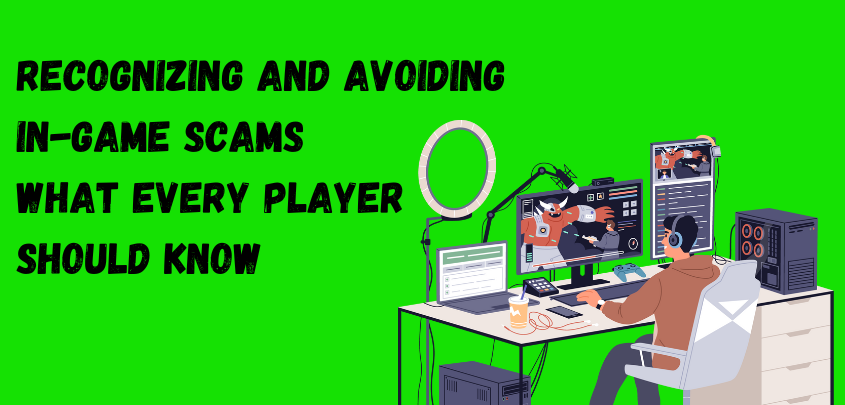
04, Sep, 2024
Recognizing and Avoiding In-Game Scams: What Every Player Should Know
In the gaming world, scams have become increasingly sophisticated. While some are well-known, others fly under the radar. Here’s a guide to spotting both common and uncommon scams so you can game safely.
1. Fake “Item Duplication” Glitches
Scammers often claim to know a glitch that can duplicate valuable items in the game. They may ask you to hand over an item to “test” the glitch. Spoiler: The glitch doesn’t work, and your item disappears with them. Remember, if duplication glitches were real, game developers would have patched them by now.
2. “Boosting” Scams
Want a higher rank or better stats? Some scammers offer paid “boosting” services, where they promise to improve your in-game performance. However, once paid, they may vanish or, worse, gain access to your account and steal your items. Always be wary of these offers and only trust legitimate, well-reviewed services.
3. Fake “Bug Bounty” Programs
Scammers may pose as game developers, offering rewards for finding bugs or glitches. They’ll ask you to submit personal information or even your login credentials to receive the reward. Real bug bounty programs never require your password, so always verify through official channels.
4. Social Engineering Scams
This is where scammers exploit your trust or emotions. For example, they might pretend to be a player in need, asking for help or in-game currency, only to never return the favor. Alternatively, they may pretend to be an admin or mod, demanding your account info to resolve a fake issue.
5. “Giveaway” Scams
Scammers love to lure players with fake giveaways, especially on social media. They promise free in-game currency or rare items in exchange for likes, shares, or worse—your account details. Legitimate giveaways never ask for sensitive information, so always check the authenticity of such offers.
6. Fake Customer Support
If you encounter an issue, scammers might pose as customer support, especially in public forums or chats. They’ll ask for personal information or login credentials to “fix” your issue. Always reach out to official support through verified channels and avoid giving sensitive information to strangers.
7. Pyramid Schemes in Gaming
Yes, even games aren’t immune to pyramid schemes! These scams usually involve promises of earning in-game currency or items by recruiting others into a scheme. The catch? You have to “invest” upfront, and the scammer pockets your investment. Avoid any deal that requires recruitment to succeed.
8. “Keylogger” Mods
Some mods or add-ons for games can be embedded with keyloggers—software that records your keystrokes. Scammers use these to capture your login credentials or payment information. Only download mods from trusted sources, and scan files for malware before installing them.
9. Fake “Early Access” or “Beta Test” Invitations
Getting early access to a game or being a beta tester sounds exciting, but scammers often exploit this by sending fake invites. They’ll ask you to download a file or enter your login details to participate. Always check official websites or social media channels for real announcements.
10. “Ransomware” Threats
In some extreme cases, scammers might try to scare you with ransomware tactics, claiming they’ve taken over your account or device and demanding payment to unlock it. Never fall for these threats—immediately report the incident and seek official help.
Scammers are always looking for new ways to trick gamers, so staying informed and cautious is your best defence. By recognizing both the common and less-known scams, you can enjoy your gaming experience with confidence.
